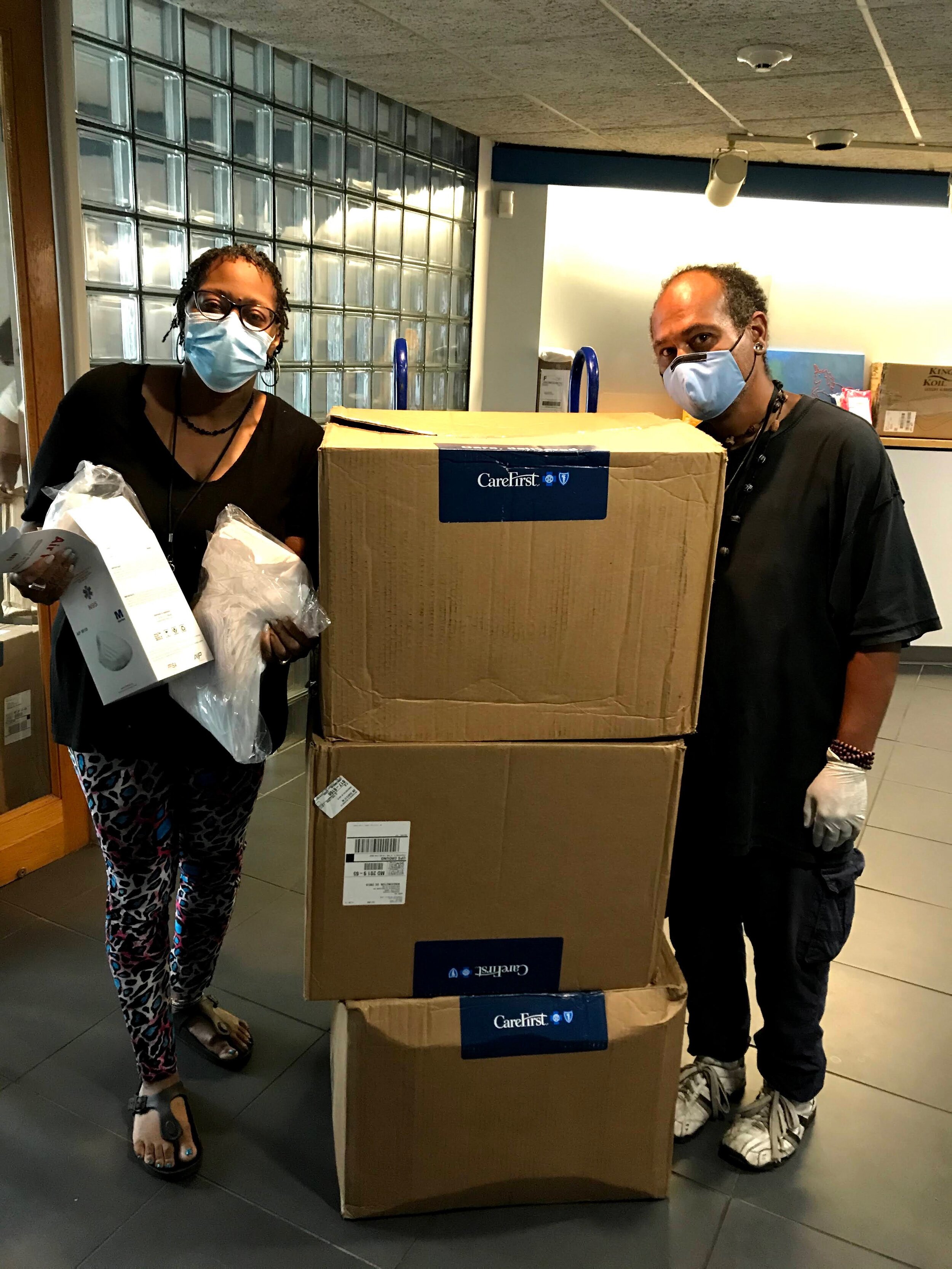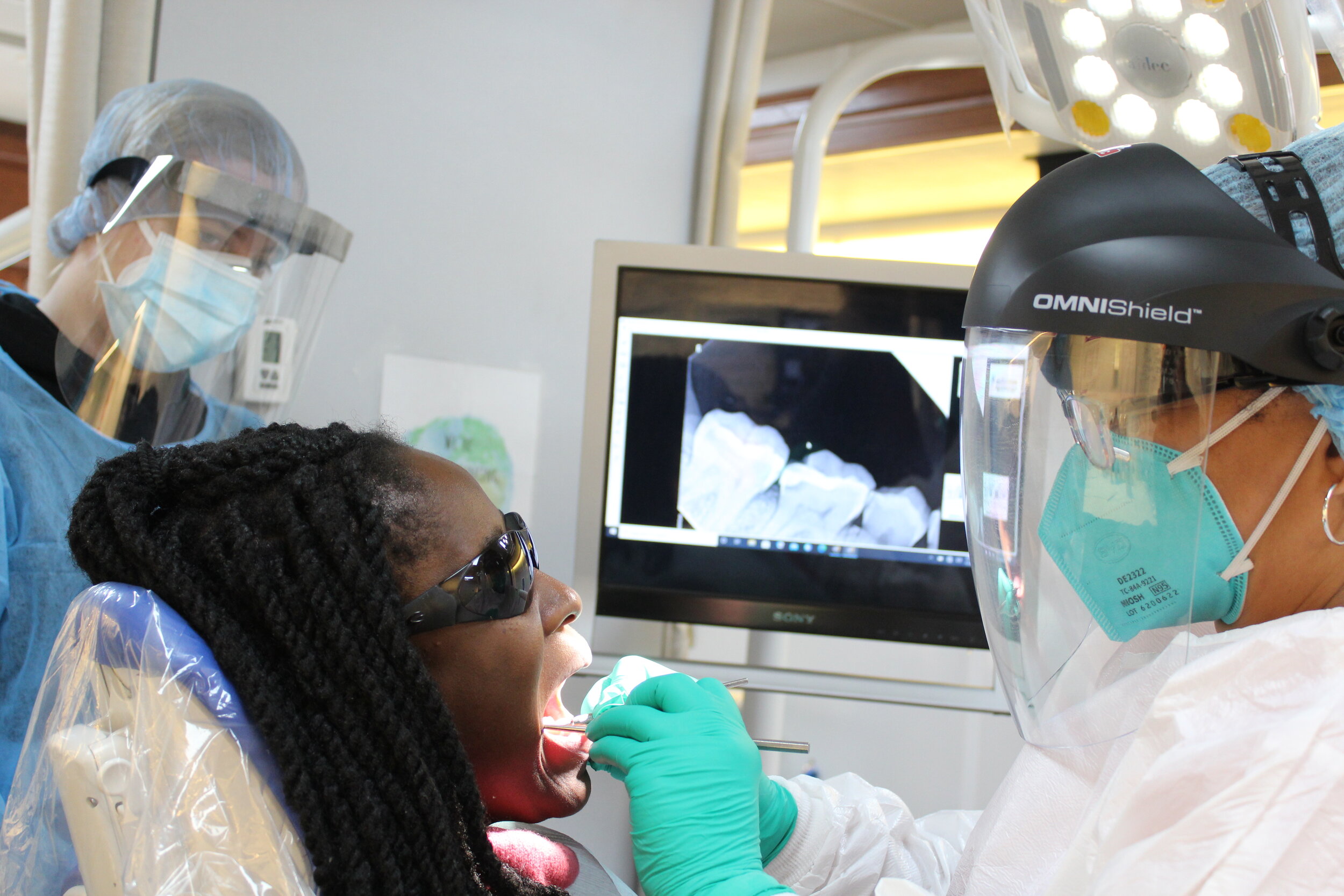#1: Tonia Wellons Named Hero of the Crisis, Nonprofit Leader of the Year
It’s been a busy year for Community Foundation staff—especially for Tonia Wellons, who was named permanent President and CEO just weeks after the pandemic hit. Tonia was recently named Washington Business Journal’s 2020 Nonprofit Leader of the Year for her role and leadership in our region’s COVID-19 Response efforts; and “Hero of the Crisis” from Washingtonian Magazine. We are so proud of Tonia, and the incredible leadership she’s provided throughout this crisis.
#2: COVID Impact Stories: Bringing Partner Voices to Life
This special video highlights our COVID-19 nonprofit partners’ impact —and thanks donors for their incredible generosity and support throughout this crisis.
Highlights are pulled from our individual, 2-minute COVID impact story videos, including local organizations like Black Swan, Generation Hope and Montgomery Hospice. Click here to access a full list of videos—and hear more of our nonprofit partner’s stories first-hand.
#3 Your Voices Matters: VoicesDMV On the Table Conversations
On October 1, we hosted our inaugural VoicesDMV On the Table conversations, bringing together hundreds of residents from across the region for small-group conversations, remotely. Groups discussed and reimagined the future of our community, offering meaningful, action-oriented perspective on how to improve the lives of our neighbors in the DMV. Read more from Benton Murphy, Senior Advisor for Impact, who led the initiative.
#4: Arts Forward Fund Announces $1 Million in Grants to Local Arts Groups Impacted by COVID-19
This fall, together with the Morris & Gwendolyn Cafritz Foundation and 16 other foundations and individual donors, we launched the Arts Forward Fund, an initiative to help local arts and culture organizations weather the impact of COVID-19. We were so excited to announce $1 million in grants from the fund, helping arts and culture nonprofits make essential shifts needed to sustain their work—and respond to the national movement for racial justice.
#5: Back to School Means Facing the Digital Divide
As remote learning continues, schools still don’t have enough devices for every student, and too many homes in DC lack access to high-speed internet. Together with the DC Public Education Fund and Education Forward DC, we established the DC Education Equity Fund, which has provided 4,000+ students with internet access. and 3,000+ students with personal devices. Read more in “Back to School Means Facing the Digital Divide,” by our partner Erin Sheehy of Education Forward DC.
#6: #MakeADifference Mondays
This bi-weekly blog series features our COVID-19 Emergency Response Fund partners’ stories, grouped by funding priority: housing and homelessness, medical care and access, education and youth, domestic and community violence, and workforce and small business. Take our #MakeADifference Monday: Housing and Homelessness blog, for example, which includes a feature on Mi-Casa, Inc.:
Through its Emergency Rental Assistance and Tenant-Based Rental Assistance programs, [Mi Casa] helped more than 15 residents access critical housing resources. More than 400 households received virtual trainings around financial education, food banks, unemployment benefits, and the financial effects of the pandemic.
Read our blog for a full list of our #MakeADifference Monday posts, sharing the difference your support has made for our community.
#7: How to Reconstruct an Equitable Future for Our Region
In this opinion piece for the Washington Post, our President and CEO Tonia Wellons and Ursula Wright, Managing Director for FSG, explore a new framework for reconstructing a more equitable future for our region. In the article, they refer to our country’s current situation as a “trifecta of crises” that threatens our nation’s public health, economic security, and democracy.
Though this pandemic is new, racism and economic injustice are not. The pandemic has served to further reveal preexisting inequities in housing, education, health care, food security, policing and criminal justice, income and employment.
#8: Celebrating Three Leadership Legacies
Richard Bynum, board member and President of PNC in Greater Washington and Virginia, was honored by the Washington Business Journal with the Minority Business Leader Award—an honor that coincided with two other major board member milestones. Dr. Charlene Dukes, Secretary of our Board, retired as President of Prince George’s Community College after 13 years of service. And Artis Hampshire-Cowan, Vice Chair of our Board, was honored by Leadership Greater Washington as the 2020 Leader of the Year.
Read more about their achievements and success stories.
#9: Legacy Fund Supports Small Businesses in Prince George’s County
This fall, we were proud to launch The Legacy Fund for Small Business Development, seeded with a $1 million gift directed by Sam Brin and support from Meridiam, to provide critically needed access to capital for small businesses in Prince George’s County—one of the hardest hit groups in the County. We have disseminated $1 million in relief funds to 173 small Prince George’s County small businesses, helping them minimize vulnerability to closure and enabling them to thrive.
#10: Celebrating the Power of Our Community
It’s been challenging year, but our community stepped up in amazing, awe-inspiring ways. Our community recently came together to celebrate these efforts at the Power of Our Community, Montgomery County and Power of Our Community, Prince George’s County, two virtual convenings that applauded the cooperative spirit of these communities and the collective impact of our work.
Read our Power of Our Community recap to watch the event recordings and view our key-takeaways and impact video updates.
















